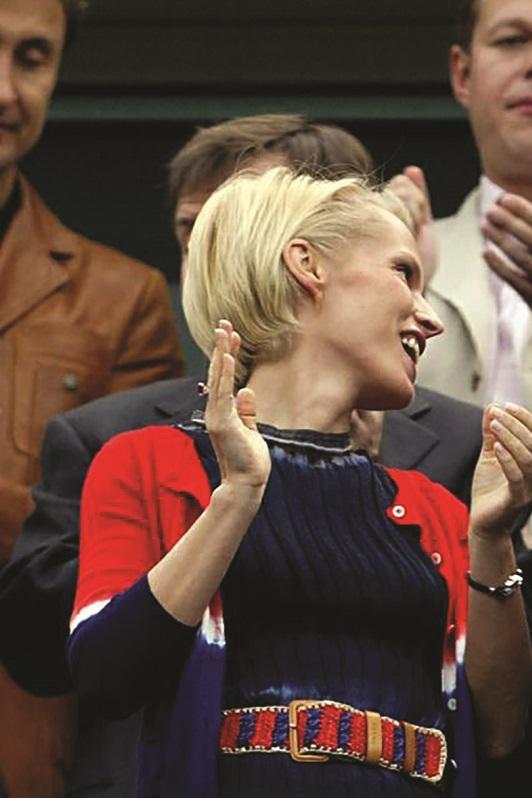Malta’s cash-for-passports scheme was an instant hit with rich Russians.
In its first full year of operation, 54.3 per cent of applications were submitted from Russia.
The flood of prospective passport buyers from Russia even led Identity Malta, the government entity that ran the scheme at the time, to acknowledge the need for “market diversification”.
After years of brushing aside the reputational risks inherent in such a scheme, Russia’s invasion of Ukraine has sparked renewed scrutiny on who it chose to sell European passports to.
Times of Malta takes a look at some of the prominent Russians who have gravitated towards the Maltese passports scheme.
Mikhail Fridman
Fridman is one of the Russian oligarchs slapped with EU sanctions in response to the war.

He applied to buy a Maltese passport in 2014, landing a meeting with former prime minister Joseph Muscat in the process.
The Russian oligarch pulled the plug on his attempt to become a Maltese citizen in 2016.
He says he withdrew his application because his simultaneous application for Israeli citizenship was successful.
The EU has described Fridman as “a top Russian financier and enabler of [Russian president Vladmir] Putin’s inner circle”.
Fridman features on Forbes’ top 500 billionaires list. He is a co-owner of Alfa-Bank, the largest private bank in Russia.
Alfa-Bank is one of the Russian banks to be hit by the EU sanctions.
Alexey Alexandrovich Marey
Marey joined scores of other Russians in the flurry to get a Maltese passport in 2014.
Two years later, he and his family members officially became Maltese citizens.
He sits on the board of the now sanctioned Alfa-Bank.

Marey has worked his way up the bank’s ladder over the years, having joined it in 2004.
Marey even served as the bank’s CEO between 2012 and 2017.
He features as a shareholder in a Maltese company called Enern Tech 2.
The company was set up by Panama Papers firm Nexia BT.
Nexia BT’s managing director Brian Tonna found himself embroiled in an alleged passport sales kickbacks scheme involving then OPM chief of staff Keith Schembri.
Both men are currently facing prosecution as a result of an inquiry triggered as a result of the claims, which they deny.
Irina Abramovich
Irina Abramovich, the former wife of Russian billionaire and owner of Chelsea Football Club, was due to be given red carpet treatment in Malta when she planned to visit in 2014 with a view to obtaining Maltese citizenship.
Abramovich was promised “the highest confidentiality” and a “Rolls-Royce service”.
This trip, and her bid to become a Maltese citizen, was called off at the last minute when she asked for more time to think it through.

Abramovich’s former husband, Chelsea owner Roman, has scrambled to sell the famous London club in light of the sanctions being slapped on Russian oligarchs.
The Chelsea owner, who is facing calls to be added to the sanctions list, is said to have known Putin for “decades”.
Vadim Vasilyev
Vasilyev is a former Soviet-era diplomat who applied to buy a Maltese passport for himself and his family in 2014.
During one of his visits to Malta, Vasilyev met with then prime minister Joseph Muscat.

Vasilyev has set up two companies in Malta to hold and operate his assets.
He is reportedly a good friend of Dmitry Rybolovlev, owner of the French football club Monaco.
Vasilyev even spent a stint as Monaco’s vice president.
While Rybolovlev has sought to distance himself from Putin, his name featured on the so-called Putin Accountability List in the US, which identified him as a potential target for sanctions.
Maxim Shubarev
Shubarev got his hands on a Maltese passport in 2018. The Russian millionaire hit the headlines this week after his 70-metre luxury boat sailed into the Grand Harbour, at a time when the international community is cracking down on assets held by rich Russian nationals.
Shubarev, 59, is the chair of Setl Group, a major Russian construction company based in St Petersburg.

Online sites estimate he has a net worth of around $500 million. Shubarev does not feature on any sanctions lists.
Pavel Grachev
Pavel Grachev is a Russian millionaire who bought a Maltese passport in 2017.
Polyus, a company he runs and holds shares in, was barred from the London Stock Exchange on Thursday.
Polyus was one of 27 Russian-linked companies that the LSE announced it had suspended from trading “in light of market conditions, and in order to maintain orderly markets”.
Polyus advertises itself as a national gold mining champion in Russia.

The Passport Papers, a trove of leaked data from former concessionaries Henley & Partners, showed how Grachev and his family first applied for Maltese passports in 2014.
To meet the 12-month residency requirement, Grachev rented a flat at Portomaso in St Julian’s for €2,800 per month.
He spent less than 10 hours in Malta in 2014.
‘Kickback’ Russians
Evgeny Filobokov, Irina Orlova and Viktor Vashkevich had found themselves at the centre of the “kickbacks storm”, after a money trail was established between their payments for passports to an offshore company owned by Tonna.
The Russian trio obtained their Maltese passports in 2016. They are not implicated in the alleged wrongdoing.
That same company then went on to pay €100,000 to Schembri.
Times of Malta had revealed that same year how Vashkevich and his family were given the right to vote, despite paperwork submitted to electoral authorities showing they were ineligible.
Apart from selling Vashkevich a passport, Tonna had also set up a company for him in December 2015.
In a declaration made to the MFSA, Vashkevich said the company in question conducted the bulk of its business overseas.